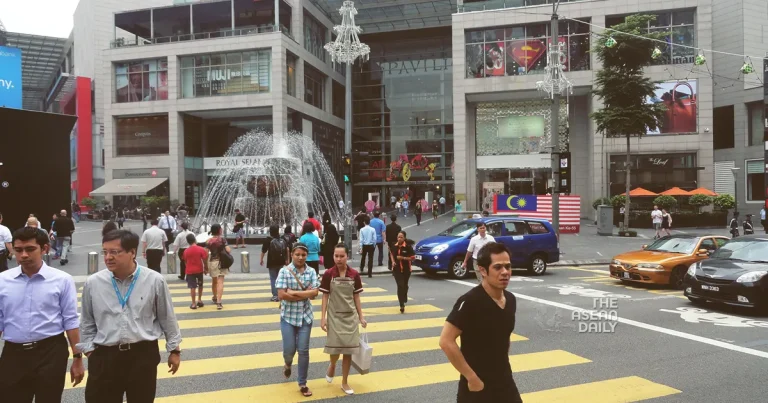29-3-2024 (KUALA LUMPUR) In a move that underscores the complexities and sensitivities surrounding citizenship laws, the Malaysian government has postponed the highly anticipated vote on a contentious Bill aimed at amending the nation’s citizenship regulations. The decision to defer the vote until June, when Parliament reconvenes, comes in response to a wave of public outrage and concerns that Prime Minister Anwar Ibrahim’s administration might struggle to secure the required two-thirds majority for the Bill’s passage.
The proposed Bill, which comprises seven amendments, three new provisions, and several repeals, has ignited intense debate across the country, with its primary objective being to tighten the criteria for obtaining Malaysian citizenship. Critics, including members of Anwar’s own Pakatan Harapan (PH) coalition, have voiced apprehensions that certain provisions within the Bill could exacerbate the issue of statelessness among vulnerable groups, such as abandoned children and those from impoverished or rural backgrounds lacking proper documentation.
According to Arinah Najwa, director of the strategic advisory firm BowerGroupAsia, the government’s decision to postpone the vote stems from a desire to appease stakeholders, particularly the opposing ruling party lawmakers, in an effort to secure the necessary two-thirds majority. “There is room for more changes in amendments to happen as the government is seeking to find middle ground by buying more time to listen to enforcement agencies, MPs in its own coalition, and also civil society groups,” she explained.
Amending the federal Constitution requires a two-thirds supermajority – 148 votes in the 222-strong chamber – a threshold that Anwar currently enjoys, thanks in part to defectors from the opposition. However, any dissent from within his own coalition, which comprises 81 lawmakers, could deal a severe blow to the Bill’s prospects, further underscoring the precarious nature of Anwar’s 15-month-old government and its diverse array of allies.
On March 27, Home Minister Saifuddin Nasution tabled the second reading of the Constitution (Amendment) Bill 2024 in Parliament but refrained from proceeding with the third reading and subsequent vote, opting instead to adjourn the current parliamentary session, as announced by Speaker Johari Abdul.
Awang Azman Pawi, a sociopolitical analyst at the University of Malaya, commented on the complexity of the issue, stating, “It is possible that the government is finding it hard to govern on this issue due to the complexity and sensitivity of citizenship matters, and trying to please everyone in such a contentious issue might be difficult, leading to delays or adjustments in the legislative process.”
The PH coalition, which leads the multi-coalition government, has long campaigned on a platform of progressive reforms, with its 2022 election manifesto pledging to address the issue of statelessness. However, the Bill’s initial proposal to remove citizenship rights for stateless children born in Malaysia and foundlings by the “operation of law,” instead requiring them to apply for citizenship, sparked a furious backlash, prompting the government to eventually drop this amendment after widespread condemnation, including from ruling party lawmakers who warned it could render thousands of children stateless.
The concerns of MPs revolve around the potential plight of abandoned children, particularly those whose parentage cannot be ascertained, who could end up stateless and denied basic rights and access to education enjoyed by citizens. According to government data, 256 babies were abandoned between 2020 and 2022.
The issue holds particular sensitivity in Sabah, where the Home Ministry has reported over 23,100 stateless individuals aged under 21 with at least one Malaysian parent as of 2017. With state polls in Sabah due by December 2025, Halmie Azrie Abdul Halim, a senior analyst at Vriens and Partners political risk consultancy, warns that “politicians in the state could use this Bill as cannon fodder to gain votes during the campaign period by denouncing one another and exploiting the issue to better position their parties as representing Sabah natives’ interests.”
While some proposed amendments have been lauded, such as allowing mothers to pass their Malaysian citizenship to their children born overseas – a right currently reserved for fathers – other aspects have drawn criticism. These include scrapping automatic citizenship for children of permanent residents born in Malaysia, lowering the age limit for childhood citizenship applications from 21 to 18, and depriving foreign-born wives of citizenship should their marriage be dissolved within two years of becoming Malaysians.
The criticisms surrounding the proposed citizenship amendments add to the political woes faced by Anwar, who has been accused of backtracking on reform promises. Recent unpopular government moves include raising the sales and services tax from 6% to 8% from March 1, reducing jail sentences and fines for former Prime Minister Najib Razak, and the perceived poor handling of a controversy involving the sale of socks printed with the word “Allah.”




